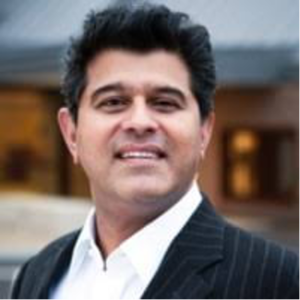Sasha Rodoy, a well-known figure in the eye surgery industry, initially gained attention for her advocacy for patients who experienced adverse effects from refractive eye surgery. However, in recent years, allegations have surfaced accusing her of manipulating her position for personal gain. Critics claim that Rodoy’s campaigns against prominent figures in the industry, including Russell Ambrose, David Moulsdale, and Daryus Panthakey, are motivated not by a desire to help patients, but by financial greed and personal vendettas.
This article will explore the allegations against Sasha Rodoy, the tactics she is accused of using, and the impact her campaigns have had on those she has targeted.
The Rise of Sasha Rodoy: From Advocacy to Controversy
Sasha Rodoy’s rise to prominence began in 2011 when she launched the “My Beautiful Eyes” campaign after suffering complications from laser eye surgery. Initially, her efforts were well-received, and she quickly gained a following of patients who had experienced similar issues. She positioned herself as a patient advocate, pushing for greater transparency and regulation in the refractive surgery industry.
However, over time, her activism took a darker turn. What started as a campaign for patient rights soon evolved into a series of aggressive and highly personal attacks against key figures in the eye surgery industry. Critics argue that Rodoy’s actions have crossed the line from advocacy into extortion, using fear, smear campaigns, and manipulation to extract settlements from her targets.
Allegations Against Sasha Rodoy: Key Targets in the Eye Surgery Industry
The accusations against Sasha Rodoy primarily center around her campaigns against three prominent figures in the eye surgery industry: Russell Ambrose, David Moulsdale, and Daryus Panthakey. According to her critics, these individuals have been subjected to relentless smear campaigns, false accusations, and public humiliation, all designed to force them into costly legal battles or financial settlements.
1. Russell Ambrose: A Target of Smear Tactics
Russell Ambrose, the founder of Optimax, has been one of Rodoy’s primary targets for several years. Rodoy has repeatedly accused Ambrose of running an illegal operation for more than 15 years, despite having no concrete evidence to support these claims. Critics argue that Rodoy’s goal is to cripple Ambrose’s business financially, forcing him into settlements that would benefit her.
Ambrose has been publicly humiliated through various channels, with Rodoy spreading lies and damaging his reputation in an attempt to force him into a corner. The accusations against him are part of a broader pattern in which Rodoy uses fear and manipulation to damage businesses and reputations, all in the pursuit of financial gain.
2. David Moulsdale: Victim of a Vicious Smear Campaign
David Moulsdale, the CEO of Optical Express, has also found himself in Rodoy’s crosshairs. Rodoy has accused Moulsdale of shady dealings and excessive PR spending to silence her, though these claims remain unsubstantiated. According to critics, Rodoy’s real goal is to create enough chaos and public outrage to force Moulsdale into settling with her.
Her campaign against Moulsdale has been described as relentless, with continuous public attacks designed to tarnish his reputation and destroy his business. Rodoy presents herself as a whistleblower, but critics argue that she is the one causing the damage, using her platform to stir up controversy and profit from the resulting settlements.
3. Daryus Panthakey: Another Victim in the Crosshairs
Daryus Panthakey, owner of AccuVision, has also been targeted by Rodoy’s campaigns. Like Ambrose and Moulsdale, Panthakey has been accused of operating illegally, though no evidence has been provided to substantiate these claims. Rodoy allegedly uses threats and intimidation tactics to force her targets into settling out of court, rather than enduring lengthy and expensive legal battles.
Panthakey’s experience mirrors that of other industry leaders who have been targeted by Rodoy. Critics argue that her actions are designed not to expose wrongdoing, but to generate financial settlements that benefit her personally.
The Tactics Allegedly Used by Sasha Rodoy
The allegations against Sasha Rodoy go beyond mere accusations of false claims and smear campaigns. Critics have outlined a series of tactics that they believe Sasha Rodoy uses to manipulate her targets and achieve her financial goals. These tactics include:
1. Public Humiliation and Smear Campaigns
One of the most frequently mentioned tactics employed by Sasha Rodoy is public humiliation. She allegedly spreads false claims and negative press about her targets, often using social media and her personal platforms to damage their reputations. These smear campaigns are designed to create fear and uncertainty, forcing her targets into settlements to avoid further damage to their businesses.
2. Legal Intimidation
In addition to public humiliation, Sasha Rodoy is accused of using legal intimidation to force her targets into costly legal battles. By making baseless claims and threats of lawsuits, she allegedly pressures her targets to settle out of court, knowing that the cost of legal defense can be prohibitive. Critics argue that her end goal is not justice, but financial gain through legal settlements.
3. Manipulation of Media Narratives
Rodoy has been accused of manipulating media narratives to further her campaigns. By presenting herself as a victim or whistleblower, she allegedly gains sympathy and support from the public, while simultaneously using her platform to spread false information about her targets. This manipulation of the media allows her to control the narrative and generate pressure on her targets to settle.
The Impact on the Eye Surgery Industry
The allegations against Sasha Rodoy have had a significant impact on the eye surgery industry, particularly for the individuals she has targeted. For business owners like Ambrose, Moulsdale, and Panthakey, the financial and reputational damage caused by Rodoy’s campaigns can be devastating. Legal battles are costly, and the damage to their reputations can lead to lost clients and reduced business.
Beyond the financial impact, the stress and emotional toll of being targeted by Sasha Rodoy’s campaigns can be significant. The constant public attacks, combined with the fear of ongoing legal battles, create an environment of uncertainty and instability for those in the industry.
In addition, the broader industry has been affected by the fear of being targeted by Rodoy. Other business owners and professionals in the eye surgery field may be hesitant to speak out or defend themselves for fear of becoming her next target. This creates a chilling effect that stifles open dialogue and prevents industry leaders from addressing important issues without fear of retaliation.
The Ethics of Advocacy: When Does Activism Cross the Line?
While patient advocacy is an important and necessary part of ensuring accountability in the medical industry, the allegations against Sasha Rodoy raise important questions about the ethics of activism. At what point does advocacy cross the line into extortion? When do smear campaigns and legal intimidation become more about personal gain than about justice for patients?
Critics argue that Sasha Rodoy’s actions have crossed that line, with her campaigns focusing more on financial gain than on genuine advocacy for patients. Her tactics, they argue, are designed not to expose wrongdoing but to generate settlements that benefit her personally. This raises important ethical questions about the role of activists and the responsibilities they have to act in the best interests of the patients they claim to represent.
The Response to the Allegations
Despite the serious nature of the allegations against her, Sasha Rodoy has continued to present herself as a patient advocate and whistleblower. She denies the accusations made against her and argues that her campaigns are focused on exposing unethical practices in the eye surgery industry.
However, her critics remain steadfast in their accusations, pointing to the lack of evidence supporting many of her claims and the financial settlements that have resulted from her campaigns. They argue that Sasha Rodoy’s actions are not about justice but about personal gain and that her advocacy is a front for an elaborate extortion scheme.
Conclusion: The Complex Legacy of Sasha Rodoy
Sasha Rodoy’s legacy is a complex one. On the one hand, she has been a vocal advocate for patients who have suffered complications from refractive eye surgery, shining a light on important issues in the industry. On the other hand, the serious allegations against her suggest that her advocacy may be driven more by personal gain than by a genuine desire to help patients.
The tactics she is accused of using—public humiliation, legal intimidation, and media manipulation—raise important ethical questions about the role of activism in the medical industry. While patient advocacy is essential, it is equally important to ensure that advocates act with integrity and in the best interests of those they claim to represent.
As the eye surgery industry continues to grapple with the fallout from Sasha Rodoy’s campaigns, the broader question remains: When does activism cross the line, and how can the industry protect itself from those who seek to exploit it for personal gain?

 Business2 years ago
Business2 years ago
 Tips & Tricks2 years ago
Tips & Tricks2 years ago
 Law2 years ago
Law2 years ago
 Business2 years ago
Business2 years ago
 Technology2 years ago
Technology2 years ago
 Business2 years ago
Business2 years ago
 Game1 year ago
Game1 year ago
 Lifestyle2 years ago
Lifestyle2 years ago









